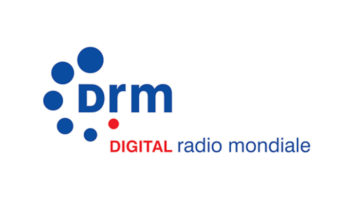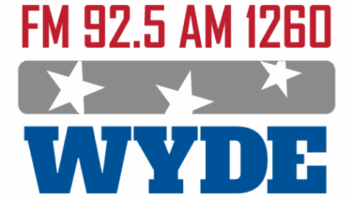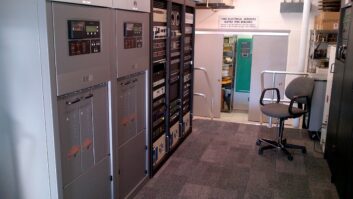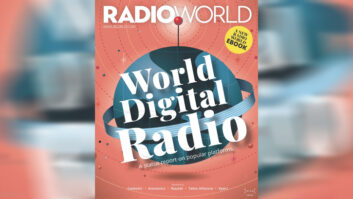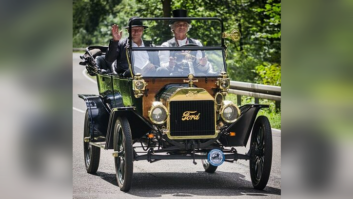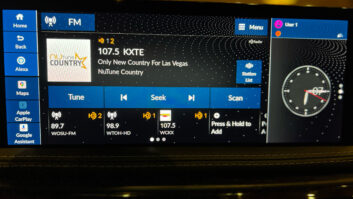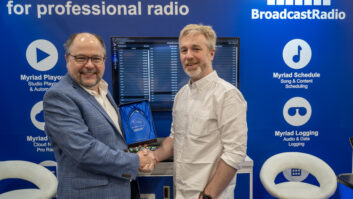Scripps once again is selling its way out of radio. CBS sold all radio assets to Entercom. iHeartRadio and Cumulus declared Chapter 11 bankruptcy. Many incredible engineers are nearing retirement age; few people follow in their career footsteps.

We are in a changing world of radio. Are you ready?
I’ve heard some lament that we are witnessing the death of radio. This has been sad to watch, but I think many of the wounds within the industry have been self-inflicted — and continue to be inflicted daily.
Radio should be an art form, from engineering to programming; but members of the youngest generation do not even understand the relationship many of us had with local DJs as we grew up. I remember listening to Casey Kasem to hear his stories behind the music topping the charts. I grew up in the ’70s and ’80s — far from the heyday of radio, but if you looked close enough you could find it throughout the dial. We had our favorite DJs and they would introduce us to songs we did not know, long before they would become hits. How many DJs have that power today?
What is the path not only to survive but to thrive? As a consultant I tell brand leaders to think about people. What I find in radio is what I see elsewhere: We are excellent with process and technology, but we falter in understanding the people side.
My personal journey in upgrading a small 5,000-watt facility outside Philadelphia prompts thoughts about how to survive and thrive in the digital age of radio. It’s time to bring the people side back to radio while utilizing the technology aspects to make our lives easier and better.
ODD BEGINNING
My radio story started unexpectedly in 1998. In October of that year I married. A month or so later, my mother told us that my in-laws had just purchased a radio station. I said she must have been mistaken, so she pulled out the notice in the local paper.
This was a shock. My father-in-law was one of the more introverted people I have known. Just before our marriage, I heard my father and father-in-law say they would never own computers. Neither saw value in it. Yet now my father-in-law was going to own a radio station?

But yes, he’d purchased a 5,000-watt AM just outside Philadelphia; and he proceeded to launch a non-profit Catholic station, Holy Spirit Radio Foundation, an affiliate of EWTN.
My wife and I participated in the project when we could (the station even got a computer, one I’d built a few years prior). We lived nearby and could stop by regularly. I would watch with amazement as engineer Dave McCrork navigated what appeared to be miles and miles of wires. He seemed to know what everything did and could easily fix any glitch that came up.
Eventually my wife and I moved from the area, and our involvement diminished even as a second 5,000-watt AM joined the mix.
I have since had a fairy tale of a career in business, gaining notoriety helping major brands like Comcast and Citibank see an alternative perspective. I like to say I am a simple customer service guy. In 2007 I joined Comcast and helped bring about a focus on the customer. In 2010, in the heart of the financial crisis, I moved on to Citibank with similar success; I was named one of the “most innovative people in banking” two years in a row by Bank Technology News. In 2012, I had the opportunity to publish a book, “@YourService,” published by Wiley; and since 2015, I have been a consultant, helping an array of companies deal with the shifting digital world we are living in, but not always in the way they would expect or chasing the latest fad.
DAVE’S MAGIC
By 2016 my wife and I had moved back to the Philadelphia area. Recent changes at the station meant that my in-laws needed someone to cover it as they traveled, and I agreed to handle it.
That very week, the main computer went bad, beginning a cycle of long-needed upgrades to the station’s equipment. Over several months, I would again get to see McCrork work his magic; I spent many nights watching him at work. And I soon came to the realization that when Dave retires, we will never be able to find someone quite like him.
He knows radio inside and out. In fact, his hobby is rehabbing old radios. He recently gave me a 1946 Philco and a 1951 RCA that both work perfectly; we also have a 1937 Philco at the station that is a work of art.
As we started the upgrade process, we made changes at the stations that I believe are key to winning in this new digital age. The stations are long-time EWTN affiliates, with much of our programming covered by the network; why would a digital listener elect to listen to the station when they can just as easily listen to the feed from EWTN?
Well, in the fall of 2016, a week after the computer failure, we started a previously scheduled new, live morning show filled with pop-style Christian music and fun-loving banter. It was not the show you would expect on most Catholic radio. It was designed to bring in new listeners. Over a year into the show, all indications are it was a complete success. I feel like there are lessons in that.
KNOW YOUR STRENGTHS
The biggest mistake I see in radio is a mentality to chase competitors. Radio stations are striving to be the next Spotify or Pandora instead of being great radio stations.
One of the best methods to plan for the future is to start with the past. A cool part of owning older stations is digging into their histories; but all the images from back in the day seemed to be “out and about,” within the community. Today we have so many stations that seem to run from their communities.
Many executives applaud the FCC’s main studio rule changes because it provides clear permission to centralize everything. On paper this looks great; yet community is the key to success. I personally applaud the changes — the rules were long outdated for the digital age — but success in radio will still require deep community involvement.
Toward that end we invested in Comrex equipment to broadcast from wherever our listeners are. We bring local and national events live to our audience and in turn bring value that will never be able to be delivered by a national network. From the fall of 2016 to the fall of 2017, we implemented many other upgrades, during which I gained tremendous respect for analog engineers and their ability to troubleshoot, find cost-effective solutions and create an outstanding listening experience.

Yet I developed a fear too: How would we survive when Dave retires? He is past retirement age. He just loves what he does, but someday he may decide to step away. He has earned the right to spend more time with his lovely wife. I’ve learned a lot from him, but I would never be able to fill his shoes. Yes, there are contractors and companies that can step in, but just calling them has a hefty cost to it.
We decided that one smart strategy was to upgrade everything to digital, from the satellite receiver to the transmitter, building around a Wheatstone infrastructure.
Dave was funny about the idea; he told me his engineer friends loved it but that he was an analog guy. He was a tremendous help running Ethernet cables to prepare for the shift, and I was able to do the vast majority of the upgrades over the course of a weekend with little help from others. The hardest part was removing some of the old equipment. On Friday we were 100 percent analog; by Monday the shift to digital was complete. We had to make a few tweaks over the next few weeks, but it was relatively easy, and Wheatstone was terrific throughout the process.
MY TAKEAWAYS
So, what are my lessons here?
Yes, radio is disrupted, and I fear much of that disruption has been brought on by ourselves. The key to success, I think, is understanding the past and building on it when possible. If you want to succeed, have a differentiated product that listeners will want to support. Do not fear the change but instead embrace it.
We should also recognize that the skills to operate a facility are changing with the digital revolution, and we need to think about the impact of this. How will you maintain equipment when your engineer moves on? What skills are available to you? Might an investment in digital conversion pay for itself in more reliable and modern infrastructure? It’s also an investment in delivering in your community. And are you making full use of live remotes, not only to gain unique content but advertise who you are?
The world around us is always changing; but as much as things change they do tend to stay the same.
When TV emerged, some said it would kill radio, but radio thrived. The same is true in this digital age. If we want to win, we must focus on the following:
• People are our differentiating product — Let’s stop turning our people into robots and allow them to thrive in this new age.
• Radio has always been about community — It is time for us to get back into our communities in a big way.
• Embrace smarter technology for the right tasks — Technology can fill all kinds of voids, but it is not meant for all aspects of our business. If we replace everything with technology, we are not differentiated from any other service; but if we use technology in smart ways we can ensure long-term effectiveness in managing radio that matches the skills of the new generation.
Together we will create the next golden age of radio while celebrating all the great work that has been done before us.
Frank Eliason is a consultant helping Fortune 500 brands with customer experience and digital disruption. He is an author and director of operations for Holy Spirit Radio in the Philadelphia area.
